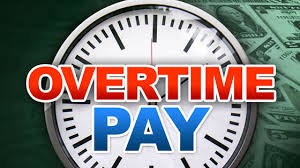Last Tuesday, November 22, 2017, Judge Amos L. Mazzant III of the U.S. District Court for the Eastern District of Texas, ruled in favor of 21 states and a coalition of business leaders who had sued to overturn the U.S. Department of Labor’s new rule. The rule, which would have gone into effect in December 1, was written to require overtime for any salaried workers making less than $913 per week or $47,476 annually. This amount was being raised from $455 per week or $23,660 annually.
ruled in favor of 21 states and a coalition of business leaders who had sued to overturn the U.S. Department of Labor’s new rule. The rule, which would have gone into effect in December 1, was written to require overtime for any salaried workers making less than $913 per week or $47,476 annually. This amount was being raised from $455 per week or $23,660 annually.
This rule would have created problems for many home care companies who use salaried office workers to handle on-call services evenings and weekends. It would require agencies to pay office staff on an hourly basis, including the time they are working evenings and weekends taking call.
Judge Mazzant ruled that the DOL regulation is unlawful and granted an injunction that covers the entire country. The judge wrote in his 20 page ruling that “the rule creates a salary-only test”, while the while the Fair Labor Standards Act says that “employees can be exempt from minimum wage and overtime if they perform executive, administrative, and professional duties.” The original intent of the overtime rule under the Fair Labor Standards Act (FLSA) is to apply exemptions based on duties rather than strictly on salary levels, and the DOL’s rule change would have placed a sole emphasis on salaries, he wrote.
One irony of this case is that Judge Mazzant was appointed by President Barack Obama. In 2014, The President had directed the Secretary of Labor to modernize and streamline the overtime regulations for executive, administrative, and professional workers. This injunction could potentially unravel this policy guidance by The President.
What Does This Mean for Home Care?
The salaried overtime rule change by the DOL would have required that all of your office staff earning less than $913 per week would have to be paid on an hourly basis, and paid overtime for more than 40 hours in a week. The biggest challenge for many agencies we talked with was the hassle and the frustration for office staff clock in and clock out each day. Most salaried office staff don’t normally clock in, so they have some flexibility in their hours.
The other big challenge was figuring out how to fairly pay office staff for carrying a company cell phone and answering calls evenings and weekends. While they would not have to be paid hourly to answer the phone, they would have to be paid for any work that comes from that phone call such as finding a caregiver to cover a shift. If the hours spent handling evening and weekend scheduling caused the worker to go over 40 hours they would have to be paid overtime.
The injunction by Judge Mazzant puts the new rule on hold. However, we suggest that you watch this case closely. If the DOL decides to appeal the ruling and wins the appeal, you could be back with salaried overtime. For most home care companies, the danger of this is not an inspection from a DOL inspector. The big danger is a plaintiff’s attorney who finds a few of your office staff and files a class action suit for back pay, interest, penalties, and attorney’s fees.
We had a conversation just the other day with the owner of a home care company who is being sued by a former employee. While the amount of back pay in question is under $1,000, the agency owner expects the defense of the suit and the trial will cost over $150,000. His liability insurance will cover $100,000 of his legal bills with a $15,000 deductible. The owner discovered that this same attorney had sued another home care company in a similar case, and the former employee did not even know that a suit had been filed in her name.
Follow this Discussion on LinkedIn and Facebook
We will continue to write about the overtime rule and other legal and regulatory matters affecting home care. You can enter into a discussion with other leaders on our LinkedIn and Facebook pages.
Go our our Leading Home Care Network on LinkedIn
or our Leading Home Care Page on Facebook to join the conversation. 





